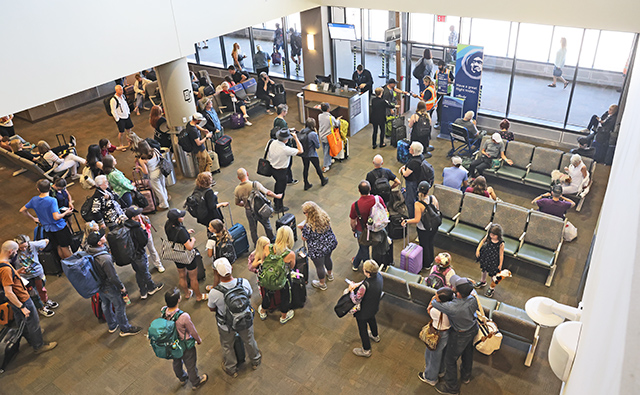Editorial: Congress should pass the No Pain Act
Published 9:30 pm Monday, July 5, 2021

- Opioid Crisis
Blake’s opioid addiction began after a motorcycle accident when he was in his teens. He needed multiple surgeries to repair his jaw and mouth. His mom, Tony Karlowicz of Sunriver, told us he was prescribed opioids for the pain.
Blake got hooked.
By the time he was 19, he was addicted to heroin. He did get into treatment. He still died from an overdose on July 23, 2019. He was 28.
More than 800,000 people have died in the United States since 1999 from a drug overdose. Opioid overdoses make up an alarming percentage.
In 2019, 70% of all drug overdose deaths in the country involved opioids. In Oregon, an average of five people die a week from opioid overdose. In Deschutes County, there were 66 overdose deaths from opioids from 2016-18.
Deschutes County Sheriff Shane Nelson told us increasingly his team have had to administer not just one but multiple doses of naloxone to help reverse opioid overdoses. He believes naloxone has helped his deputies save at least 30 lives in the last 5 or so years.
Oregon already encourages and supports nonopioid treatments. It collects better data to track the problem. Prescriptions for opioids have been declining steadily. And anyone can get naloxone from a pharmacist. But opioid addiction is still ruining too many lives here and across the country.
The No Pain Act could help. It’s a bill in Congress with bipartisan support. Oregon Sen. Jeff Merkley, a Democrat, is a cosponsor. The bill shifts billing practices in Medicare to attempt to encourage more nonopioid solutions for pain. It doesn’t ban opioids or eliminate reimbursement for them. It attempts to make it easier to use nonopioids.
“Across Oregon, I’ve seen the devastation and heartbreak in the faces of families who have lost loved ones to the illness of opioid addiction,” Merkley told us in a statement. “All too often, these life-destroying addictions begin with a doctor’s prescription. We should be doing everything in our power to encourage doctors to prescribe non-opioid painkillers when possible, so it makes absolutely zero sense for Medicare to make it more cost-effective for hospitals to prescribe opioids rather than other pain management alternatives.”
There is a consideration about the bill to be aware of. The backers of the Voices for Non-Opioid Choices Coalition that supports the bill’s passage includes funding from Pacira Biosciences, a manufacturer of nonopioid pain relievers, and other manufacturers. The coalition is, in fact, much broader — representing a range of medical professionals, addiction and recovery organizations and more.
The No Pain Act won’t solve the opioid crisis. But passing it could help prevent more overdoses and family anguish.






